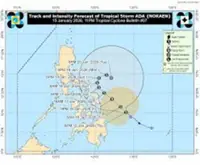TOKYO: President Ferdinand Marcos Jr (pic) said a “paradigm shift” was needed in how the Philippines approaches its maritime dispute with China, noting that diplomatic efforts with Beijing were headed “in a poor direction” and showing “very little progress.”
“It’s time that the countries that feel that they have an involvement in this situation come up with a paradigm shift,” Marcos said in a Dec 16 interview with Mainichi Shimbun, parts of which were released by Malacanang in a statement on Tuesday (Dec 19).
Already a subscriber? Log in
Save 30% OFF The Star Digital Access
Cancel anytime. Ad-free. Unlimited access with perks.





